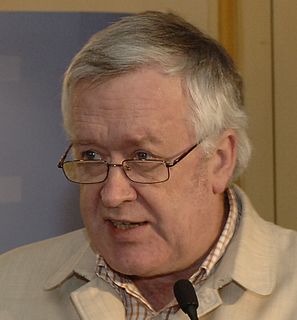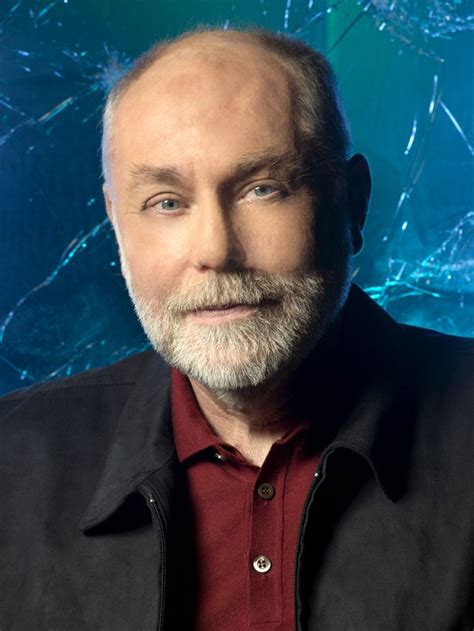A Quote by Martin Rees
The important point there is that when people talk about a mean temperature rise of say two, three or four degrees that's a sort of global average which really is a signature of large scale change in climatic patterns.
Related Quotes
We can no longer completely avoid anthropogenic climate change. At best, limiting the temperature rise to two degrees is just about possible, according to optimistic estimates. That's why we should spend more time talking about adjusting to the inevitable and not about reducing CO2 emissions. We have to take away people's fear of climate change.
Diversity is a survival factor for the community itself. A community of a hundred million species can survive anything short of total global catastrophe. Within that hundred million will be thousands that could survive a global temperature drop of twenty degrees—which would be a lot more devastating than it sounds. Within that hundred million will be thousands that could survive a global temperature rise of twenty degrees. But a community of a hundred species or a thousand species has almost no survival value at all.
Many scales of climate change are in fact natural, from the slow tectonic scale, to the fast changes embedded within glacial and interglacial times, to the even more dramatic changes that characterize a switch from glacial to interglacial. So why worry about global warming, which is just one more scale of climate change? The problem is that global warming is essentially off the scale of normal in two ways: the rate at which this climate change is taking place, and how different the "new" climate is compared to what came before.
There's a lot of differing data [about global warming], but as far as I can gather, over the last hundred years the temperature on this planet has gone up 1.8 degrees. Am I the only one who finds that amazingly stable? I could go back to my hotel room tonight and futz with the thermostat for three to four hours. I could not detect that difference.
Climate scientists think of nothing but climate and then express their concerns in terms of constructs such as global mean surface temperature. But we live in a world in which all sorts of change is happening all the time, and the only way to understand what climate change will bring is to tell stories about how it manifests in people's lives.
Global warming has become a new religion. We frequently hear about the number of scientists who support it. But the number is not important: only whether they are correct is important. We don't really know what the actual effect on the global temperature is. There are better ways to spend the money.
We are on track for a 3.5 deg C rise by 2040 (i.e. 4.2 deg C relative to pre-industrial)... When I look at this data, the trend is perfectly in line with a temperature increase of 6 degrees Celsius, which would have devastating consequences for the planet. We have 5 years to change the energy system, or have it changed
There is an idealism associated with poetry I would not dispel but question. It doesn't change anything except within. It shifts your insides around. Poetry is not going to reach the numbers of people by which we commonly consider a large audience. It just isn't a stadium-filler. It could still galvanize people during a crisis, but let's just say there are two points at which poetry is indispensable to people - at the point of love and the point of death. I'll second that emotion.



































